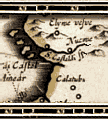







|
|
|
|
Ver. 1.0, March 2000
Q: Can you get dead party members back? A: There are several options for recovering dead party members, but none of them are easy. If your character has learned the appropriate college of magic, then you will have access to a spell that can Resurrect creatures. Tech characters have something similar available to them, however it may have a somewhat different effect, as this is still being balanced. A diplomat PC might be able to attract a Mage follower who can cast this spell, or a Tech follower who has a similar ability. The added benefit of having a follower, such as a Mage, for example, is that if YOU die and the follower isn't under attack, they can Resurrect you! You may also be able to Resurrect people at some churches and certain other locations. A: Dialog lines for NPCs appear near them, the engine tries to place them over the head of the NPC in question, unless there is a nearby text line that would overlap (in which case it shifts it over a little to a clear area). They can still overlap in some cases, but different text colors can fix this. Your dialog options are shown in a see-through window below you. You won't see your own dialog choice appear over you (so *it* won't interfere with your view), though in multiplayer games other players will see what you say. When in normal dialog, the dialog "text-bubbles" don't disappear until you make your next choice, so you don't have to worry about losing track of what they just said before you make your decision. We feel that this method helps the player feel like they are still in the game, instead of switching to a different interface, which can be somewhat disorienting. Q: What can scripts test against in dialog? A: Here's a list of what we can test against on any line of dialog:
How smart is the PC? These tests are used to select paths through dialog for both the NPC and the PC. On any given dialog line we only use a few of these tests, but having the full range available allows for fairly complex quests and substories. A: Most NPCs have places to be during the day and at night, whether it's a guard walking his post or a merchant at her shop, and these places generally won't be in locations that would block you, unless they are *meant* to be there (a guard preventing you from entering a building, for example). If for some reason an NPC is not at their expected location (if they were fighting, running an errand, etc.), they will soon return to that location. NPC followers can also be given commands to tell them to move. They can be told directly to move out of your way, and they can also be told to keep their distance or to stay close to you (useful for fighting). |